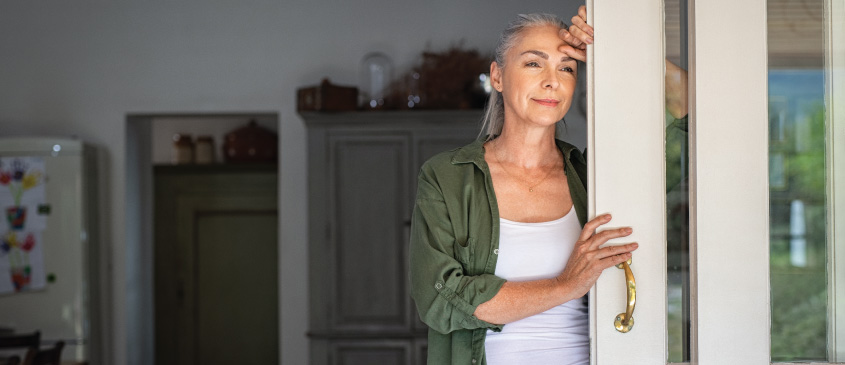Retired, Extremely Dangerous

A few weeks ago, we watched the action comedy R.E.D. featuring Bruce Willis as retired black ops agent whose peaceful retirement is disrupted by a CIA order to eliminate him. The comedy rests in the ridiculously casual way the characters approach their killing careers.
RED, it turns out stands for his classification: ‘retired, extremely dangerous’. Now there’s a classification to which we can aspire!
There’s also a romantic sub-plot and the characters kept us laughing with their advice on how to sustain a relationship. If you don’t mind gunfights or fist fights and are not scandalized by the callous attitude of the cast of assassins, it’s a fun watch.
But we’re not here to write a movie review. Rather, we want to talk about retirement. Being in our 50s, our retirement is approaching… sometime. So, we’re watching and engaging in conversation with those at various stages of the process.
If there’s one thing that keeps coming up, it’s that it’s not always smooth sailing. Retirement can be a hazardous time for marriages.
A young couples’ issue
Planning for retirement starts a long time before the event. ‘Bucket Lists’ are born in our teenage years, many of the items on it to be fulfilled in retirement.
Embarking on our working life in young adulthood brings into focus the reality of the grind ahead of us, a prospect that consolidates once we begin a family and our financial responsibilities balloon.
Moreover, the actual date of retirement often moves around a fair bit. Almost everyone dreams of retiring early, only to discover that our lifestyle expectations have outrun our savings plan.
Then of course there is a question of what we actually mean by retirement. For some it’s a long relaxation with not much to do, for others it’s just a new phase of work with less income.
So, there’s lots of uncertainty around retirement and that in itself is a prompt for relationship heartache.
Transitions are always confronting
Apart from the obvious financial implications, retirement triggers a shift in lots of significant aspects of our shared life: roles and identity, time availability, territorial challenges, and dream processing.
Furthermore, it’s complicated by the fact that often retirement for husband and wife happens at different times, depending on our age, career pathways, health and disposition.
Here’s some thoughts on the challenges of retirement and what we as couple can do now to address the future issues and maximise our chances of a harmonious transition when the time comes.
1. Financial Implications
Retirement marks a very significant shift from active income to reduced income or living off assets. Although we are all eager to partake of the freedom promised by retirement, financial realities often mean that our freedom is reduced after retirement.
For those of us who have strong values for financial security or a desire to leave assets for our children, the cessation of active income can be stressful. And if our spouse’s values are different to ours, conflict over spending can easily emerge.
Such disagreements are not exclusive to retirement. If we have divergence on our values about money, those differences will likely be troublesome throughout our marriage. So, tackle these early on because this is one difference that we don’t typically outgrow.
2. Changing roles and identity
We remember hearing the story of a Chief Executive of a large company. On the first day of his retirement, his wife slid a ‘Honey Do List’ of home chores and renovations across the breakfast table. He silently read the list, picked up a pen, wrote ‘approved’ and handed it back!
Old habits die hard … for both of us. We both have expectations of what our role will be in retirement, and it’s unlikely that they will align perfectly.
Moreover, for those who have enjoyed public esteem through their professional role, retirement often entails the loss of relevance and influence. This can be distressing, and many retirees need a period of grieving to adjust.
Today, it is much more common for retirement to be gradual with people moving from full-time to part-time to casual work before retiring fully.
For others, retirement from paid employment allows them to devote serious energy to charity and volunteer work. This can be a great help in easing the transition and is an effective way to continue our contribution to society and maintain our influence.
3. Time availability
When employment absorbs the lion’s share of our time, there is less disposable time over which couples can negotiate. Disagreements about who ‘owns’ the retiree’s new time bonanza are thus common.
For example, the first to retire, will likely be expected by the still-working-spouse to do more (if not all) of the domestic work. Yet most of us don’t aspire to becoming fulltime homemakers on retirement.
Again, the issue of domestic responsibilities is also present in our younger years. It’s wise to make how we divide these responsibilities an active discussion so that it doesn’t become a retirement time bomb.
4. Priorities that set up our future
All choices have consequences. If we are not prepared to compromise our career and work commitments, it’s likely we will neglect our marriage and family to some degree and cause tension at home. If we neglect our work too much it will have financial consequences that may mean less financial security or a delay to our retirement.
Whatever choices we make, it’s important to own our choices and their consequences – both good and bad. Pretending that ‘we don’t have any choice’ is not true and rarely helpful.
Palliative carer, Bronnie Ware has some great insights on priorities drawn from the regrets of those near to death. Top of the list was “I wish I’d had the courage to live a life true to myself, not the life others expected of me”, followed by, “I wish I hadn’t worked so hard”.
5. Territorial Challenges
Retirement can also usher in fresh disagreements about spaces. We often hear stories of how difficult wives find it when their recently-retired husband is hanging around all day at home and getting under foot. Her routine also needs to adjust to his retirement.
There are other spaces that might also be contested in the transition to retirement. For example, if there was a room set aside as a home office, when working from home is no longer required, each spouse may have very different ideas for how that room might be repurposed.
Start talking early about what kind of spaces you need now and after retirement so that this one doesn’t ambush you.
6. Dream Processing
Dreams are important. Each of our dreams capture a deeply held value that gives meaning and purpose to our life. Yet most of our dreams will go unfulfilled.
Many of these dreams will be unrealized because we recognised their folly and happily abandoned them. Other dreams die when we do the ‘maths’ and realise that the cost (time, energy, money, consequences to important relationships etc.) is not worth the value the dream fulfillment is likely to bring. We can let these dreams go without regret.
Other dreams do not die so easily and leave us with regret and resentment. One common cause may be due to our surrender to another’s agenda, either done willingly or reluctantly.
When couples enter retirement with a backlog of unfulfilled dreams, there can be an unwelcome tussle for priority.
Take the time now to explore your dreams thoroughly, looking carefully for the values that underpin them. Often it is not the literal dream itself that is the key to its fulfillment, but the value behind it.
7. Living well, dying well
An unavoidable subtext of retirement is the approach of death and the decline of health. Illness has a habit of curtaining many of our hopes for retirement and can bring added pressure to our relationship.
One of the most important things we can do to order our lives rightly is to take an eternal perspective. At the end of the day, this present life is our preparation for the next.
As Christians, the Gospel stories tell us to ‘Stay Awake! For we do not know the day or the hour’ when our life on earth will end. In all our planning, it’s good practice to test it against how we might weigh the value of our choices when we stand before God.
Whatever we have accumulated in material assets and experiences will be not nearly as important as the relationships we have nurtured… or neglected. Chief among these is our relationship with the God who gave his life for us, followed by our marriage.
Retirement is not really a singular event in our life, but a process; a process of transition from paid employment with all its challenges and benefits, to one without active income. It comes with the gift most of us have lamented for most of our lives – of not having enough time – and so let’s not waste it.
While retirement may be ‘extremely dangerous’, it’s one life stage we all look forward to experiencing!


A great article Francine and Byron. All those issues are so relevant. Your articles keep me connected and grounded in reality.
My husband and I have been living in retirement now (semi retirement for me) for 12 years.
There’s a dimension that can undergird all these issues and that’s when we can remember to apply 1 Thessalonians 5 : 16-18 Rejoice always, pray without ceasing and give thanks to God at every moment. This is the will of God, your vocation as Christians.
I have found what can look like ‘a hitch’ can turn around to be a blessing. I have tried it and it works.
St Paul takes the gift of being thankful to a new dimension in that we are thankful even in the midst of a challenge. After experiencing this in one area of my life I’m learning that it can be applied in every area. If only I can remember!
I can even be thankful that I haven’t remembered to do it at times!